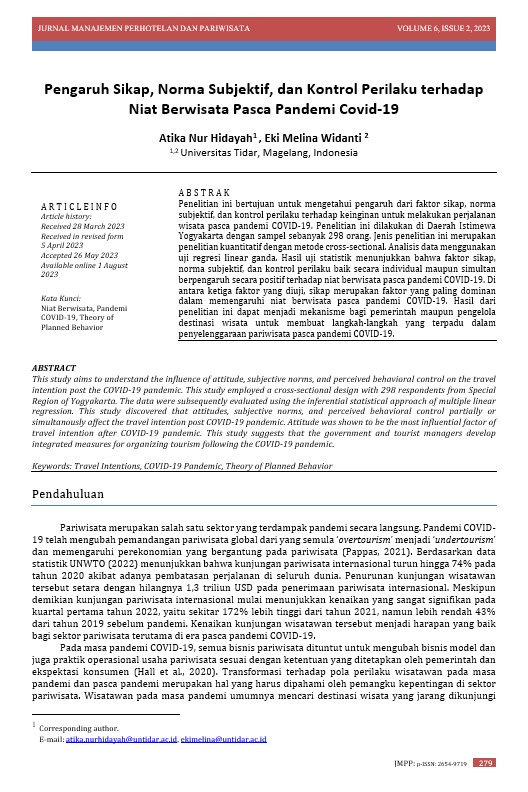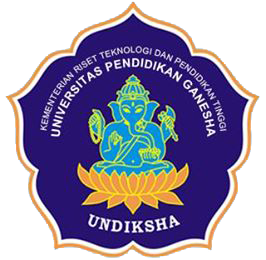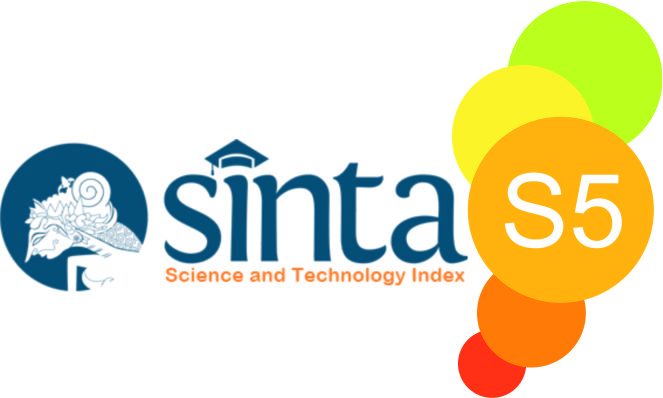Pengaruh Sikap, Norma Subjektif, dan Kontrol Perilaku terhadap Niat Berwisata Pasca Pandemi COVID-19
DOI:
https://doi.org/10.23887/jmpp.v6i2.60035Keywords:
Niat Berwisata, Pandemi COVID-19, Theory of Planned BehaviorAbstract
Penelitian ini bertujuan untuk mengetahui pengaruh dari faktor sikap, norma subjektif, dan kontrol perilaku terhadap keinginan untuk melakukan perjalanan wisata pasca pandemi COVID-19. Penelitian ini dilakukan di Daerah Istimewa Yogyakarta dengan sampel sebanyak 298 orang. Jenis penelitian ini merupakan penelitian kuantitatif dengan metode cross-sectional. Analisis data menggunakan uji regresi linear ganda. Hasil uji statistik menunjukkan bahwa faktor sikap, norma subjektif, dan kontrol perilaku baik secara individual maupun simultan berpengaruh secara positif terhadap niat berwisata pasca pandemi COVID-19. Di antara ketiga faktor yang diuji, sikap merupakan faktor yang paling dominan dalam memengaruhi niat berwisata pasca pandemi COVID-19. Hasil dari penelitian ini dapat menjadi mekanisme bagi pemerintah maupun pengelola destinasi wisata untuk membuat langkah-langkah yang terpadu dalam penyelenggaraan pariwisata pasca pandemi COVID-19.
References
Afshardoost, M., & Eshaghi, M. S. (2020). Destination image and tourist behavioural intentions: A meta-analysis. Tourism Management, 81, 104154. https://doi.org/10.1016/j.tourman.2020.104154
Ajzen, I., & Driver, B. L. (1992). Application of the Theory of Planned Behavior to Leisure Choice. Journal of Leisure Research, 24(3), 207–224. https://doi.org/10.1080/00222216.1992.11969889
Armitage, C. J., & Conner, M. (2001). Efficacy of the Theory of Planned Behaviour: A meta-analytic review. British Journal of Social Psychology, 40(4), 471–499. https://doi.org/10.1348/014466601164939
Azwar, S. (2015). Penyusunan Skala Psikologi Edisi 2. Pustaka Pelajar.
Bae, S. Y., & Chang, P.-J. (2021). The effect of coronavirus disease-19 (COVID-19) risk perception on behavioural intention towards ‘untact’ tourism in South Korea during the first wave of the pandemic (March 2020). Current Issues in Tourism, 24(7), 1017–1035. https://doi.org/10.1080/13683500.2020.1798895
Bhaskara, G. I., & Filimonau, V. (2021). The COVID-19 pandemic and organisational learning for disaster planning and management: A perspective of tourism businesses from a destination prone to consecutive disasters. Journal of Hospitality and Tourism Management, 46, 364–375. https://doi.org/10.1016/j.jhtm.2021.01.011
Boguszewicz-Kreft, M., Kuczamer-Kłopotowska, S., Kozłowski, A., Ayci, A., & Abuhashesh, M. (2020). The Theory of Planned Behaviour in Medical Tourism: International Comparison in the Young Consumer Segment. International Journal of Environmental Research and Public Health, 17(5), 1626. https://doi.org/10.3390/ijerph17051626
Craig, C. A. (2021). Camping, glamping, and coronavirus in the United States. Annals of Tourism Research, 89, 103071. https://doi.org/10.1016/j.annals.2020.103071
Farrukh, M., Shahzad, I. A., Sajid, M., Sheikh, M. F., & Alam, I. (2022). Revisiting the intention to travel framework in the perspective of medical tourism: The role of eWord-of-mouth and destination image. International Journal of Healthcare Management, 15(1), 28–35. https://doi.org/10.1080/20479700.2020.1836733
Feng, S. (2020). The Research of the Continuance Intention of students to Use Tourism APP: Based on the TPB Model. E3S Web of Conferences, 214, 01047. https://doi.org/10.1051/e3sconf/202021401047
Gravetter, F. J., & Forzano, L. A. B. (2009). Research methods for the behavioral sciences. Wadsworth Cenage Learning.
Gravetter, F. J., & Wallnau, L. B. (2013). Statistics for the behavioral sciences 9th edition. Wadsworth Publishing.
Grubor, Milicevic, & Djokic. (2019). Social-psychological determinants of Serbian tourists’ choice of green rural hotels. Sustainability, 11(23), 6691. https://doi.org/10.3390/su11236691
Gunagama, M. G., Naurah, Y. R., & Prabono, A. E. P. (2020). Pariwisata Pascapandemi: Pelajaran penting dan prospek pengembangan. LOSARI : Jurnal Arsitektur Kota Dan Pemukiman, 56–68. https://doi.org/10.33096/losari.v5i2.76
Hall, C. M., Scott, D., & Gössling, S. (2020). Pandemics, transformations and tourism: be careful what you wish for. Tourism Geographies, 22(3), 577–598. https://doi.org/10.1080/14616688.2020.1759131
Han, H., Al-Ansi, A., Chua, B.-L., Tariq, B., Radic, A., & Park, S. (2020). The Post-Coronavirus World in the International Tourism Industry: Application of the theory of planned behavior to safer destination choices in the case of US outbound tourism. International Journal of Environmental Research and Public Health, 17(18), 6485. https://doi.org/10.3390/ijerph17186485
Ibnou-Laaroussi, S., Rjoub, H., & Wong, W.-K. (2020). Sustainability of green tourism among international tourists and its influence on the achievement of green environment: Evidence from North Cyprus. Sustainability, 12(14), 5698. https://doi.org/10.3390/su12145698
Joo, Y., Seok, H., & Nam, Y. (2020). The moderating effect of social media use on sustainable rural tourism: A theory of planned behavior model. Sustainability, 12(10), 4095. https://doi.org/10.3390/su12104095
Jung, T., tom Dieck, M. C., Lee, H., & Chung, N. (2020). Relationships among beliefs, attitudes, time resources, subjective norms, and intentions to use wearable augmented reality in art galleries. Sustainability, 12(20), 8628. https://doi.org/10.3390/su12208628
Pappas, N. (2021). COVID19: Holiday intentions during a pandemic. Tourism Management, 84, 104287. https://doi.org/10.1016/j.tourman.2021.104287
Ponnapureddy, S., Priskin, J., Vinzenz, F., Wirth, W., & Ohnmacht, T. (2020). The mediating role of perceived benefits on intentions to book a sustainable hotel: a multi-group comparison of the Swiss, German and USA travel markets. Journal of Sustainable Tourism, 28(9), 1290–1309. https://doi.org/10.1080/09669582.2020.1734604
Ramdhani, N. (2011). Penyusunan alat pengukur berbasis theory of planned behavior. Buletin Psikologi, 19(2), 55–69.
UNWTO. (2022). Impact assessment of the covid-19 outbreak on international tourism. https://www.unwto.org/impact-assessment-of-the-covid-19-outbreak-on-international-tourism
Zhang, G., Chen, X., Law, R., & Zhang, M. (2020). Sustainability of heritage tourism: A structural perspective from cultural identity and consumption intention. Sustainability, 12(21), 9199. https://doi.org/10.3390/su12219199
Zhu, H., & Deng, F. (2020). How to influence rural tourism intention by risk knowledge during covid-19 containment in China: Mediating role of risk perception and attitude. International Journal of Environmental Research and Public Health, 17(10), 3514. https://doi.org/10.3390/ijerph17103514










